-
Reduce risk for cyclists at Murdishaw A533 roundabout.I have personally been knocked off my bike on this roundabout. I feel lucky to be alive. The police could not find the person who did this and the council say they are not willing to put any control measures in place. (because the layout is due to change in 2 years) More recently a good friend got knocked off her bike at the same location. We have since found out several other cyclists have fell victim to hit and run drivers at this same spot. Soon enough a life will be taken. I feel my suggested control measures are easily done. Personally I would like cameras to be added and speed bumps however I want to be realistic. Halton try to promote cycling which is really good for our environment however I feel in this case they have not done enough to put some preventative measures in place.160 of 200 SignaturesCreated by Del Phillips
-
Withdraw Waitrose/Duchy land from the pointless and cruel Badger CullThere is NO evidence that culling badgers makes any meaningful contribution to reducing the levels of bovine TB in cattle. The Randomised Badger Culling Trial, an 8-year, £50 million study during which 11,000 badgers were killed, produced no evidence of benefit. It found that only 1.67% of those 11,000 badgers had communicable bovine TB. The real culprits are not badgers but an outdated and inaccurate testing regime (missing 20-50% of all cases in cattle), poor biosecurity on farms, and millions of movements of cattle around the country. This year, DEFRA wants to see 33,000 badgers killed and Waitrose/Duchy have agreed to culling on their land in the west country. Two-thirds of the public are against badger culling and, as customers of Waitrose and John Lewis PLC, we call on the company to respect the science and to honour the views and feelings of their customers.1,642 of 2,000 SignaturesCreated by Kate Edmonds
-
Petition to end unsafe street lighting in Oadby GrangeWe are requesting that Leicestershire County Council make changes to their street lighting policy to keep our street lights on throughout the night. Everyday, after midnight, our streets are plunged into darkness. This has increased the incidence of crime including house and car burglaries within the area. As residents of Oadby Grange, we feel that switching certain street lights off after midnight, results in extremely vulnerable areas that are targeted as they are totally unlit. In addition to the actual increase in break ins, the part-lighting scheme, also poses a huge risk to the well-being and safety of residents. With many residents being shift workers including hospital doctors, nurses, police officers etc, it places these individuals at great risk when entering their homes late at night in complete darkness especially since many of whom would be fatigued after working a long, late shift. As residents, we can supply a series of personal CCTV footage displaying such crimes, specifically in these unlit areas, to support our claim. It is not safe for us and we have had enough of living in fear! SWITCH ON OUR STREET LIGHTS!!!566 of 600 SignaturesCreated by Fatima Osman
-
Use cycle training to teach road safety to all new driversThis would enable new drivers to understand the benefits and vulnerabilities of being on a bicycle, improving road safety for everyone. It would also improve the skills and awareness of those adults most likely to cycle on urban roads at peak times. Thirdly, it would enable many more people to experience cycling as an adult and encourage them to see the opportunities it presents for clean, cheap and easy transport.123 of 200 SignaturesCreated by Steve Walker
-
Reduce single-use plastic waste in Brighton & HoveBrighton & Hove is a coastal city, meaning it must be on the frontline when it comes to tackling plastic pollution in our oceans. As 80% of marine litter originates from land, Brighton & Hove must do everything possible to stop this pollution at source. In 2016, the Ellen MacArthur Foundation estimated that by weight, there could be more plastic in our oceans than fish, as soon as 2050. Plastics are durable, strong and long-lasting – all positive elements until you realise that they will stay in our environment for up to an estimated 600 years. (Columbia University) Over 300 million tons of new plastic are made every year – half of which is for single use plastic, such as packaging and convenience foods. In many cases, such as plastic straws, takeaway food containers and coffee cups, there are practical alternatives available that are either reusable or sustainable. It is estimated that there are over 5.5 trillion pieces of plastic currently in our global ocean and over 8 million tons of plastic are dumped into our seas each year. This equates to one refuse truck FULL of plastic every minute. Marine plastic leads to coastal / offshore dead zones, entanglement, death through ingestion, toxic transfer and, once degraded into microplastics, contamination of the food chain – including our own. We are quite literally eating the plastic that has ended up in our seas. Sign this petition so we can persuade the council to act on the issue of single-use plastic waste.542 of 600 SignaturesCreated by Jacob Arney
-
Organic Teabags Shouldn't Be Allowed To Contain PlasticBritain drinks 165 million cups of tea a day. Council food waste composting schemes recommend composting teabags. The plastic layer within the bag will break down when composted and has the potential to enter the food chain and damage the environment. The 2007 paper 'Microplastic—An Emerging Contaminant of Potential Concern?' Dr M Browne, T Galloway, and R Thompson states "Organisms with a range of feeding strategies can ingest and accumulate microplastics." Section 41.6.8 of SOIL ASSOCIATION ORGANIC STANDARDS (AUGUST 2016) states: To minimise the direct and indirect environmental impacts of your packaging during its life cycle, you must: minimise the amount of material used, maximise the amount of material that can be reused or recycled, and use materials with recycled content where possible. Surely where teabags can be made using a string-and-tag system, this would mean that they should be in order to meet the requirements for organic certification?832 of 1,000 SignaturesCreated by Ruth Walton

-
Save Bradbourne Lakes from neglectThe park was once a beautiful spot but it is in danger of becoming a silty swamp. The more run-down it gets, the worse people treat it, despite the efforts of the community and supporters within the SDC. Paths aren't repaired, which has rendered one part of the park inaccessible to lesser abled people and dead and dying trees, overhang the lakes. Leaves are not cleared up, apart from by the local community, which causes flooding onto the paths in autumn and winter and stops locals using the amenities. The park is a space that should be restored for all to enjoy, not left to decay.807 of 1,000 SignaturesCreated by Nathan King
-
wet wipes: require manufacturers to make them bio-degradeableInstead of trying to guilt the users, why not require manufacturers to make these useful items bio-degradeable? There are those of us with medical problems (colo-rectal issues) for whom wet wipes have been an absolute Godsend. But in these cases it would not be possible to dispose of them in domestic waste as they are akin to common toilet tissues. Bio-degradeable versions would be an obvious answer. Surely the manufacturers could be encouraged or even required to develop a sewer-friendly version rather than keep blaming the users.43 of 100 SignaturesCreated by Miss J. A. Fox
-
Christmas doesn't start in SeptemberWe don't need more plastic, more waste and more trash which gets created by pointless celebrations.8 of 100 SignaturesCreated by Devlyn Hardwick
-
No Tesco at Whitton/London Road TwickenhamTwickenham High Street has a high turnover of shops, and the dreaded 'Twickenham Refurbishment' sees many small independent shops constantly close down. Another Tesco is not required on the parade killing the few small independent shops that are already established at that end of the high street. What is needed in Twickenham is variety of shops to bring a higher social impact to the community and more people to the high street. This is not a good location for a Tesco which will have an adverse affect on traffic and noise for local residential neighbours. Numerous alternatives exist that would better serve the local community and strengthen its economy in these tough financial times. There are already 5 other Tesco's within a short distance of the proposed location. When the planning application is received, planning officers must notify the public or neighbours, and consult with other council departments and any other affected people or organisations. The statutory consultation period is three weeks. I will post the link here when the application has been added to the online planning portal. If there are issues of concern, the planning department will instigate a review meeting within six weeks of registration of the application and identify amendments that could address any issue or problems.238 of 300 SignaturesCreated by Alex Powell
-
Please Think Again: Don't fell our tree"The 150-year-old beech tree, next to the ground of North Ribblesdale Rugby Union Club, on public land within a Conservation area, has been earmarked to go as part of plans to improve drainage of the pitches, which can get heavily waterlogged in winter. Permission for the tree to be cut down was given by Craven District Council planners in June. But members of ROOTS - Respect Our Old Trees in Settle - have called upon the rugby club to come up with another scheme which would leave the tree intact." We feel that not enough time has been allowed to look at alternatives to destroying a healthy, mature tree. The tree is part of a beautiful avenue of trees. We do support improvements to the Rugby Club field beside it but wish to preserve the tree & believe this can be achieved. Quotes taken from Stuart Thompson's article in the Settle Herald and Pioneer on the 13th September: http://www.cravenherald.co.uk/news/15530647.More_Settle_townsfolk_join_group__39_s_campaign_to_save_rugby_club_beech_tree/ Please have a look at this short film made independently by a local person https://www.youtube.com/watch?v=DmCO1VBn3U0859 of 1,000 SignaturesCreated by Angie Pedley
-
Stop the Badger CullUp to 33,500 badgers will be shot this autumn in an attempt to control tuberculosis in cattle, a huge rise from the 10,000 killed in 2016. The government has announced that 11 new badger cull areas have been licensed, adding to the 10 already in place. Devon now has six badger culls under way, with Somerset and Wiltshire having three each, with others in Cheshire, Cornwall, Dorset, Gloucestershire and Herefordshire. The badger culls are highly controversial, with ministers and some farmers arguing they are a vital part of curbing bovine tuberculosis (bTB), which led to 29,000 cattle being slaughtered in 2016 at a cost of £100m. However, scientists say there is little evidence that the current culls will help cut bTB rates, and could spread the disease even further by disrupting badger populations. Ministers also announced the resumption of a badger vaccination scheme in “edge” areas between high and low TB regions. The scheme, suspended for the last two years due to a shortage of vaccine, will fund 50% of the costs of successful applicants. Restrictions on the movement of some high risk cattle are also being put in place – some scientists say this is the key to ending the epidemic. “Bovine TB not only has a devastating impact on our beef and dairy farms, but causes harm and distress to infected cattle,” said the farming minister George Eustice. “We have a clear plan to eradicate the disease over the next 20 years. Vaccination is just one part of our comprehensive strategy, which also includes tighter cattle controls, improved biosecurity and badger control in areas where bTB is rife to tackle the reservoir of disease in wildlife.” Each badger cull is set a minimum and maximum number of badgers to be shot. This is to ensure the animals are not wiped out locally, while killing enough for the cull to be effective – although scientists have previously criticised the government-set targets as “rubbish” and “ridiculously easy”. Taxpayers spend £500,000 on radios for badger cull marksmen Read more The total number of badgers to be killed across all the areas this autumn has been set at a maximum of 33,347 and a minimum of 21,797. The largest cull is one in Dorset that could see more than 7,000 badgers killed. The culls all met their targets in 2016, though earlier culls did not and were not effective or humane, according to an independent expert group that was subsequently disbanded by ministers. Minette Batters, deputy president of the National Farmers Union, said: “The NFU has always supported a comprehensive and proportionate eradication strategy, which balances disease controls measures with business sustainability. We must have every option available to us to tackle TB.” She also welcomed a new TB advisory service for farmers in risky areas. However, Prof Rosie Woodroffe, at the Zoological Society of London and who conducted a landmark 10-year trial on badger culling, said: “It’s depressing that the government is pursuing badger culling over such huge areas when the benefits remain so uncertain. Data published today suggest that, after three years of culling, cattle TB in the first cull zones was still no lower than that in unculled areas.” Steve Trotter, at the Wildlife Trusts, said: “We work closely with many farmers, day in, day out, and we recognise the pain and hardship of those whose cattle herds have been devastated by bTB, but killing badgers will not solve the problem. The primary route of infection is cattle-to-cattle contact. The government’s badger cull is flying in the face of science.” He said vaccination costs £82 per badger, compared to £6,800 per culled animal. Peter Martin, chairman of the Badger Trust, said: “Shooting badgers has been condemned as ‘inhumane’ by both the government’s own independent experts and the British Veterinary Association. “But it it’s also a disaster for cattle, Britain’s farmers and the taxpayer.”640 of 800 SignaturesCreated by Daren Howe
Hello! We use cookies to improve your experience by providing insights into how the site is being used. Find out more.
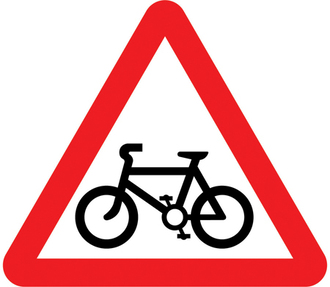
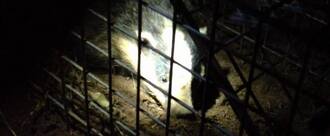
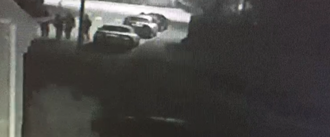
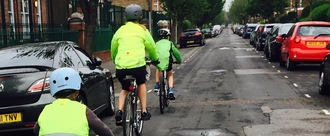
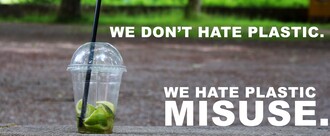

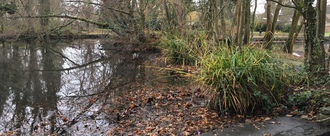

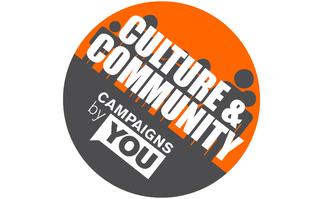

.JPG)

